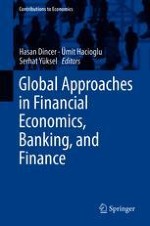2018 | OriginalPaper | Buchkapitel
7. Grouping OECD Countries Based on Energy-Related Variables Using k-Means and Fuzzy Clustering
verfasst von : Abdulkadir Hiziroglu, Ayhan Kapusuzoglu, Erhan Cankal
Erschienen in: Global Approaches in Financial Economics, Banking, and Finance
Aktivieren Sie unsere intelligente Suche, um passende Fachinhalte oder Patente zu finden.
Wählen Sie Textabschnitte aus um mit Künstlicher Intelligenz passenden Patente zu finden. powered by
Markieren Sie Textabschnitte, um KI-gestützt weitere passende Inhalte zu finden. powered by
